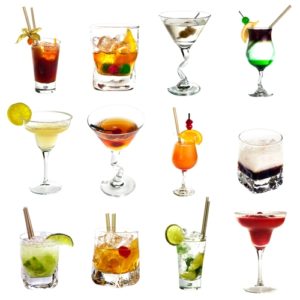
Hotels, restaurants, bars and even airlines all fall under the category of alcohol retailers. They must file a yearly permit in order to be allowed to serve adult beverages.
While attending Boulder culinary school, you may spend time learning a bit about alcoholic beverages, like how to do some bartending and good pairings of drinks with your meals. Just like the Food and Drug Administration regulates what we eat, the Alcohol and Tobacco Tax and Trade Bureau of the U.S. Department of the Treasury is in charge of laws that govern the sale, transport and labeling of alcoholic beverages. Here are some regulations you probably didn’t know:
Some state lines can’t be crossed
According to the Star Tribune, a bar owner in Maple Grove, Minnesota, may be charged with a felony for serving New Glarus Spotted Cow beer from Wisconsin. The brewer is not licensed for sale outside of the state, and according to the source, Deb Carey, co-owner of New Glarus, has no intentions of changing that in the near future. New Glarus is the No. 1 craft brewery in Wisconsin, with its Spotted Cow beers residing on the best seller lists of many a bar and liquor store throughout the state.
If the company ever wanted to open up its beers to other states, its would not only need the local distributor’s license that it currently holds to sell its brews to local distributors and retailers, but the business would also need to acquire a manufacturer’s self-distribution license or manufacturer’s warehouse license to distribute on a bigger scale.
Retailers
Bars, restaurants, gas stations, airlines and liquor stores are considered retailers of alcoholic beverages. In order to legally sell alcohol, they must fill out an alcohol dealer registration form, which tells the government who owns the business, what kind of alcohol they are selling (beer, liquors or both), and where the business is located. If you plan to open your own restaurant after completing Colorado culinary school, you will need to complete this form starting before your business opens and on a yearly basis afterward to ensure that it’s up-to-date.
Wholesalers
Companies that sell wholesale liquor are under many more regulations in order to cover the sale, import and export of beverages from both in- and out-of-state vendors. They must abide by state rules due to their location, and also the regulations placed on brews and spirits that are from elsewhere. The initial form that the business must complete is a basic permit for wholesalers from the TTB, after which they must be certified for importing drinks. These applications can be combined to make the process quicker.
Importers/exporters
Businesses that plan to import alcoholic beverages into the U.S. for public distribution or to export U.S.-made alcoholic drinks to other parts of the world must file a basic permit, especially if they hope to be exempt from import/export taxes.
Labeling
According to the U.S. Government Publishing Office, every malt beverage must contain the following information on its label:
- Brand name
- Beverage class
- Name and address of brewery
- Net contents
- Alcohol content
Each of these parts must comply with other sections of the Electronic Code of Federal Regulations.
If someone is not in compliance
For example, in the case of the bar in Minnesota that was illegally selling New Glarus beers, an anonymous tip to the police led law enforcement to the establishment’s Facebook page. On the site, they found pictures of a Spotted Cow tap handle, and then sent undercover officers to the establishment. They asked for the brew and were arrested when they served the officers. If a retailer, importer/exporter or other business that handles alcohol does not follow the regulations involving permits and taxation and it is caught, it will be forced to pay fines and eventually even be shut down for business.



